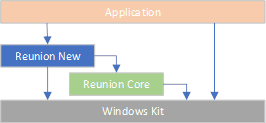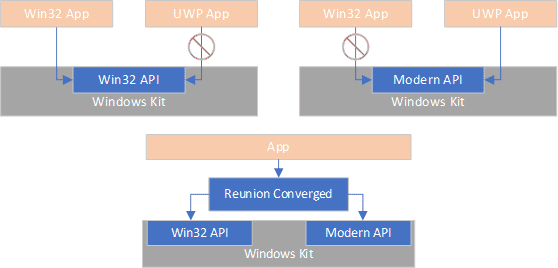Microsoft releases version 1.0 of its Windows App SDK. The SDK brings both new and merged APIs for Win32 and WinRT.
The Windows App SDK v1.0 is a set of development components and tools for the Windows app development platform. These tools can be used for desktop applications for OS versions ranging from Windows 10 version 1809 to Windows 11.
The Windows App SDK consists of libraries, frameworks, components and tools that developers can use to give applications access to the many versions of Windows functionality. It combines the functionality of native Win32 applications with modern API technology.
Windows App SDK provides a consistent API platform for existing and new functionality that automatically adapts to developers’ preferred application model and deployment mechanism. This eliminates the need to modify application code for each version of the Windows operating system.
New, converged APIs and subsets
Through the SDK, Microsoft offers new APIs, converged APIs and API subsets. The new APIs should help developers solve problems in applications and build in additional functionality. Purposes include application data storage and management, packaging and system integration, and functionality for cloud-based apps and connections to the Azure public cloud.
Converged APIs are APIs that merge both Win 32-based and modern WinRT-based APIs. This allows developers to give their applications functionality that works for all underlying platforms.
The API subsets ensure that applications developed with Windows SDK work on any endpoint, regardless of the version of the Windows operating system used.
Other functionality
In addition to the functionality for different types of APIs, version 1.0 of Windows App SDK features support for WinUI and code like C++/WinRT, Rust/WinRT and C#/WinRT. Furthermore, MSIX-Core is supported. For upcoming versions of Windows App SDK, Microsoft expects support for Edge/Chromium WebView2, Startup Tasks and Update Scan Integration.
Windows App SDK v1.0 is now available via GitHub.


